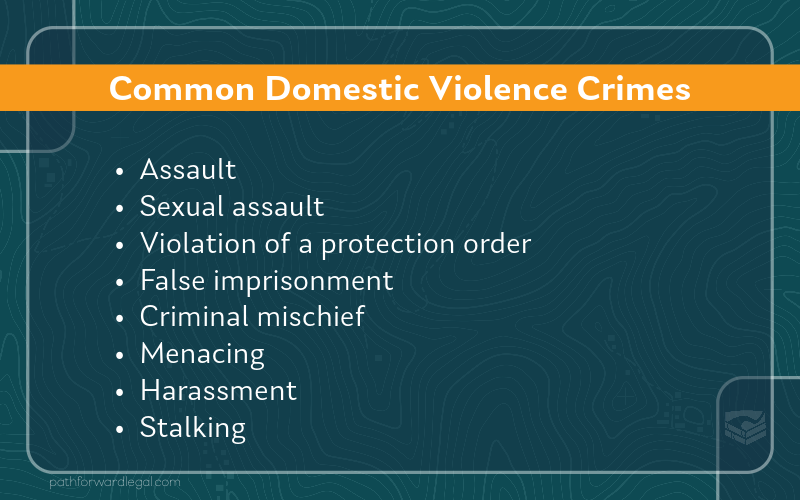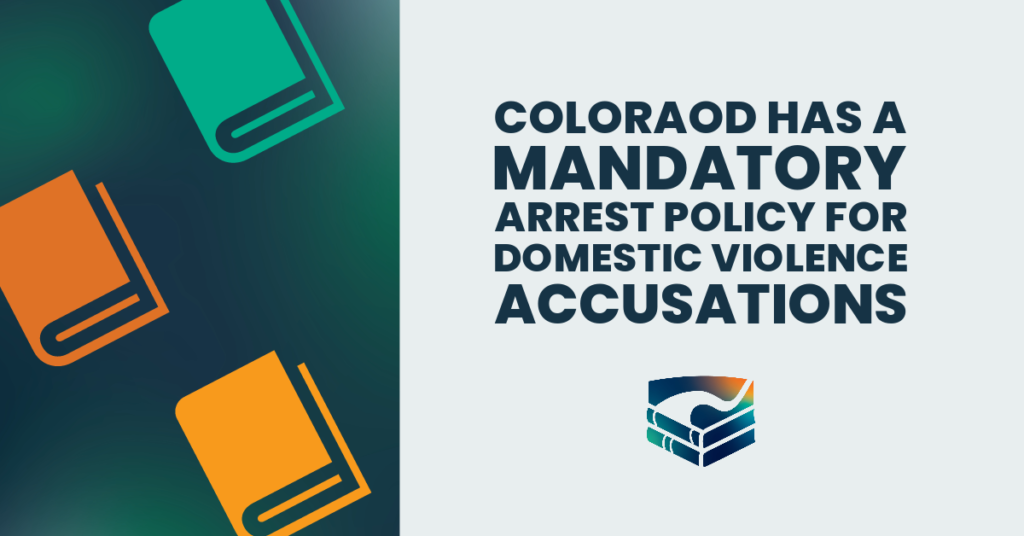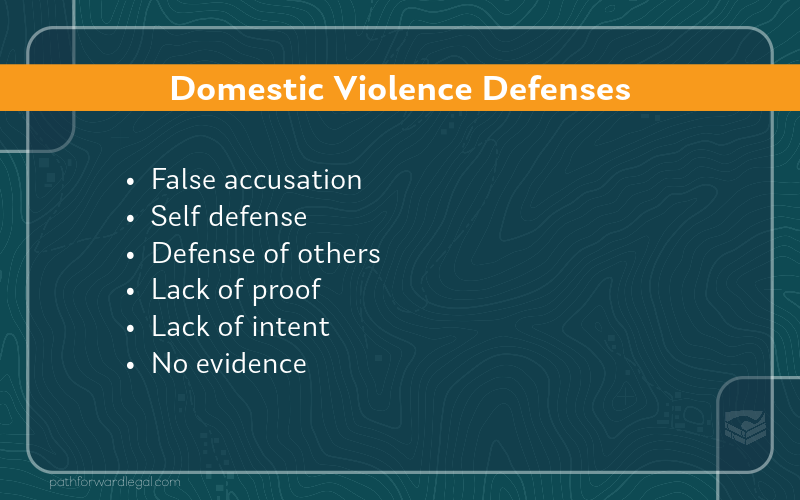If you’re facing a charge of domestic violence in Colorado, the road ahead may seem unclear. You may be hopeful that the charges could be dropped. But you also know that the serious consequences of a conviction mean that you need to talk to an attorney to make sure it doesn’t get any worse.
It’s essential to understand your rights and available options. Too often, we see people who think they are doing the right thing by trying to go to court alone. Instead, they end up messing up their case and making everything worse by accidentally admitting to criminal conduct.
At Path Forward Legal, our team of experienced domestic violence defense attorneys is committed to protecting your rights. We understand that these charges can have a significant impact on your life, so we’re dedicated to helping you secure the best possible outcome for your case.
If you’re facing domestic violence charges, don’t let things get worse. Talk to an attorney right now to protect yourself and your future.
Table of Contents
Under Colorado law, domestic violence is defined as an act or threatened act of violence upon a person with whom the offender has or had an intimate relationship. However, it’s important to understand that it’s not a standalone crime. Instead, it’s a label attached to other crimes, making the possible sentences for those crimes worse and limiting the options that the prosecutor and the judge have to dismiss the case.
Colorado’s domestic violence definition is one of the broadest in the country. You can be charged with domestic violence against anyone you have ever had an intimate relationship with, even if you haven’t had contact with them in over a decade, because there is no time limit on the relationship.
A domestic or intimate relationship may be between you and a spouse, ex-partner, boyfriends, girlfriends, or anyone you have had a child with. It does not include platonic friends, roommates, or co-workers.
The actual definition of an “intimate relationship” is:
(2) “Intimate relationship” means a relationship between spouses, former spouses, past or present unmarried couples, or persons who are both the parents of the same child regardless of whether the persons have been married or have lived together at any time.
18-6-803.3(2), C.R.S.
Domestic violence isn’t limited to physical contact. In fact, one of the most common charges used with the domestic violence enhancer is harassment. Yelling at someone, calling or texting them too often, or making them feel threatened by your presence can be charged as a crime of domestic violence.

Some of the common crimes that involve domestic violence are:
The thing that makes a crime one of domestic violence is not which crime is being charged. Rather, it depends on why the police (and then prosecutor) think that the crime was committed. For a crime to be domestic violence (or DV), it has to have been committed to coerce, control, punish, intimidate, or exact revenge against a current or former domestic partner.
Domestic violence is defined as:
(1) “Domestic violence” means an act or threatened act of violence upon a person with whom the actor is or has been involved in an intimate relationship. “Domestic violence” also includes any other crime against a person, or against property, including an animal, or any municipal ordinance violation against a person, or against property, including an animal, when used as a method of coercion, control, punishment, intimidation, or revenge directed against a person with whom the actor is or has been involved in an intimate relationship.
18-6-800.3, C.R.S.

Colorado has a mandatory arrest policy that forces police to make an arrest if they believe someone has committed a crime involving domestic violence. This means that if a neighbor calls the cops because they hear a couple fighting, if the police believe a fight occurred, someone has to get arrested. Even if no one wants to press charges and both people were fighting.
A mandatory protection order is required in all cases involving domestic violence. This order is intended to protect the alleged victim from further harm during the court proceedings. In practice, the order can prevent you from going home, going to work, or seeing your kids.
The order usually has to be put in place by a judge. This means that anyone charged with a crime of domestic violence can be held in jail until they can see a judge.
The mandatory protection order may be a “no contact” order. THat means the accused cannot contact or go within a certain distance of the alleged victim. This “no contact” order can also include no phone calls, texts, emails, or messages through social media or third parties. The court can also order the defendant to vacate a shared home, regardless of whose name is on the lease or mortgage or who is paying for the home. If the parties have children together, the order might also include provisions about custody or visitation.
The mandatory protective order, or MPO, remains active throughout the criminal case. It can be modified if the judge finds that there is good reason to change it. However, it cannot be changed just because the “victim” wants it to be modified. The order doesn’t disappear if the protected party contacts the defendant. If the defendant responds, that can lead to additional, serious, criminal charges.
In Colorado, the District Attorney (DA) has a very powerful role in dealing with domestic violence cases. The DA is an elected official, voted into office every four years. Generally, the DA delegates the decision on individual cases to lower level prosecutors who do the day-to-day work in the office. Some offices have dedicated domestic violence units who are focused on prosecuting domestic and intimate partner violence.
A “charge” is an accusation made by the DA. It says that a person is believed to have committed a crime. Many people think victims of a crime decide whether a case goes forward or not. This isn’t true. The DA (or their deputy) makes these decisions. Even though victims do have a say under Colorado’s Victim’s Rights Act, the final say is not theirs.
Even though the District Attorney is supposed to have broad power in deciding what cases to prosecute, the Colorado legislature has limited the DA’s power in Domestic Violence cases. Prosecutors are not allowed to reduce charges to drop the domestic violence enhancer, except under very specific circumstances.
Under Colorado law 18-6-801(3), a Defendant charged with a crime of domestic violence may not plead to a “non-domestic violence crime.” This means that the prosecutor can’t reduce a charge, and the judge cannot accept a plea offer, unless the government goes on record and represents that they cannot establish a prima facie case of domestic violence.
The law is very specific on what a prosecutor can and cannot do:
(3) A person charged with the commission of a crime, the underlying factual basis of which includes an act of domestic violence as defined in section 18-6-800.3(1), shall not be entitled to plead guilty or plead nolo contendere to an offense which does not include the domestic violence designation required in section 16-21-103, C.R.S., unless the prosecuting attorney makes a good faith representation on the record that such attorney would not be able to establish a prima facie case that the person and the alleged victim were currently or formerly involved in an intimate relationship if the defendant were brought to trial on the original domestic violence offense and upon such a finding by the court.
The prosecuting attorney’s record and the court’s findings shall specify the relationship in the alleged domestic violence case which the prosecuting attorney is not able to prove beyond a reasonable doubt and the reasons therefor. No court shall accept a plea of guilty or nolo contendere to an offense which does not include the domestic violence designation required in section 16-21-103, C.R.S., when the facts of the case indicate that the underlying factual basis includes an act of domestic violence as defined in section 18-6-800.3(1) unless there is a good faith representation by the prosecuting attorney that he or she would be unable to establish a prima facie case if the defendant were brought to trial on the original offense.
18-6-801(3) C.R.S.
The consequences of domestic violence charges in Colorado can be severe and long-lasting. Because domestic violence is a sentencing enhancer, there is no set penalty range. If convicted, you may face penalties such as jail time, probation, fines, mandatory counseling or treatment programs, and restrictions on firearm possession.
Adding a domestic violence enhancer means that in addition to other penalties like jail, probation, or community service, you will also have to compete a domestic violence evaluation. That evaluation will result in mandatory treatment being ordered. The length of treatment depends on the probation department’s assessment during the evaluation.
Additionally, a domestic violence conviction can have significant collateral consequences. It can affect your employment, housing, and child custody rights.
Federal law prohibits anyone who has been convicted of a misdemeanor crime of domestic violence from using or owning a gun. Colorado has an additional law that prohibits anyone under a mandatory protective order from using firearms, unless the order is carefully crafted and the use of a weapon is necessary for employment.
A restraining or protection order will also be in place during the probationary period after a conviction, and that order can affect your employment, child visitation, and living situation.

Our Colorado domestic violence defense attorneys understand the intricacies of the legal system and will work diligently to build a strong defense on your behalf. We begin by thoroughly investigating your case, gathering evidence, and identifying any potential weaknesses in the prosecution’s arguments.
Your defense will largely depend on the details of your case, but some common defenses include:
At Path Forward Legal, we recognize that each case is unique and requires a tailored approach. We will work closely with you to develop a personalized defense strategy that takes into account your specific circumstances and goals. We know that domestic violence accusations can affect more than just your criminal record. We work with you to identify your future goals, so that we can help figure out the best strategy to get you back to normal. Here’s how we can help:
Remember, facing domestic violence charges can be a life-changing event. Having a defense attorney by your side can provide you with the necessary support, guidance, and representation you need to navigate the legal process effectively.
Facing domestic violence charges can be an incredibly stressful and emotional experience. We’re dedicated to providing compassionate and understanding representation to help you through this challenging time. Our experienced attorneys have a proven track record of success in handling domestic violence cases in Colorado and are committed to fighting for your rights and securing the best possible outcome.
By choosing Path Forward Legal, you can trust that you’ll receive:
If you or a loved one is facing domestic violence charges in Colorado, don’t wait – contact Path Forward Legal today for a confidential consultation. Our experienced domestic violence defense attorneys are here to provide the confident legal representation you need to navigate the complex legal process and move forward with your life. Get started right now by requesting your free consultation.

